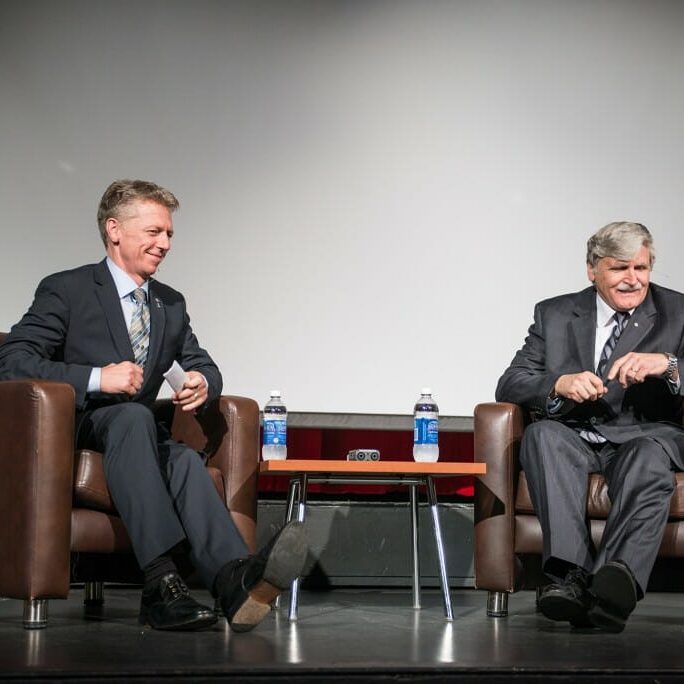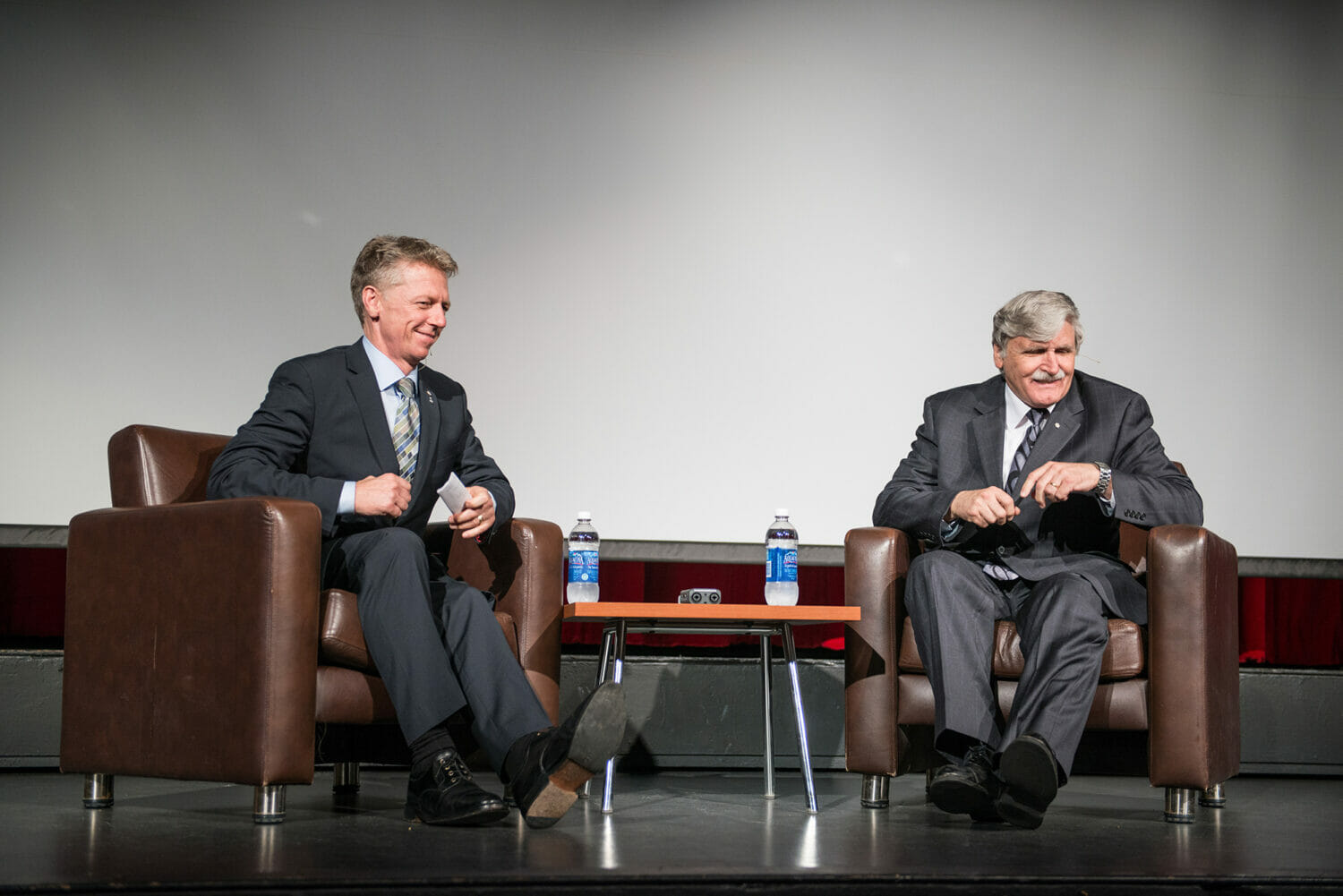
“How do you negotiate with a 13 year-old who has an AK-47?” retired Lt.-Gen Roméo Dallaire asked a packed auditorium.
Last Thursday, Oct. 10, approximately 300 Dalhousie students and members of the public filled the McInnes room of the Student Union Building to attend “The Soldier and the Doctor: A Panel Discussion of the Humanitarian Frontline.” The event was presented by the Roméo Dallaire Child Soldiers Initiative, which is situated at Dal, and included an in-depth panel discussion with two of Canada’s leading humanitarians and activists, the retired lieutenant general himself and Dr. James Orbinski.
Dallaire, a member of the Canadian Senate and outspoken humanitarian, is best known as the former United Nations Force Commander in Rwanda during the genocide of the early 1990s. He has since become an activist focusing on genocide, access to health and ending the use of child soldiers around the world. Orbinski, a humanitarian for global healthcare, was president of the French organization Médecins Sans Frontières (Doctors Without Borders) when it won the Nobel Peace Prize in 1999 and has since established his own medical humanitarian organization, Dignitas International.
The panel explored topics of frustrations in foreign conflict resolutions as well as their experiences of encountering child soldiers through their work in the field.
What both panelists expressed through their discussion was the frustration of the disconnection between the security sector and the humanitarian organizations. Dallaire remarked on the vexation he felt with the UN during the Rwandan genocide, when tens of thousands of Rwandans were being slaughtered.
“[The U.N.] pulled out the bulk of my force because the international community can’t handle peacekeepers at risk of being slaughtered,” said Dallaire, before asking: “Are all humans, human? Or do some people count more than others?” Dallaire and Orbinski emphasized the need for making change, not just as security actors or politicians but also as humans.
Child soldiers are not just made up of armed young boys; children are used as porters, cooks, couriers and even used for sexual services. Boys and girls are abducted from their homes, forced into this new and cruel environment and used as weapons of war. Orbinski explained that in times of conflict, the support system of family and community that children rely on is unraveled. By becoming child soldiers, they are manipulated into this new fabric and reality as they search for some sort of system to depend on. The Child Soldiers Initiative looks to approach ending the use of child soldiers from a preventative method, by researching why and how child soldiers are recruited, and to look for tools to prevent it.
Dallaire says that the use of child soldiers “is a level of perversion that absolutely consumes you in anger, because it goes against every fiber of your moral and ethical references, your fundamental values as a person.”
The Child Soldiers Initiative aims to bridge this gap between the humanitarian organizations and the security sector, looking to find how organizations and protective forces can collaborate to prevent these atrocities.
“All of a sudden when we’re caught up in the same space and we’re all doing concurrent work, we’re facing the same players.”
Dallaire and Orbinski claim that if these two powerful and knowledgeable forces combine and work together, that conflict resolution can turn into conflict prevention.
One project the Initiative is currently working on is in Sierra Leone. A country which has used child soldiers in past conflicts, it is now rebuilding its security force, education system and system of governance in order eradicate the use of child soldiers..
Dallaire estimates that “in five years, if we’re successful, Sierra Leone can be the reference point for the other countries of that sub-region to train and to educate the others.”
The event ended with a call for the younger generation to take part and be active in the quest for conflict prevention. The two speakers emphasized the importance for youth to listen, think, speak out, and to treat others with respect and equality. Dallaire stressed the need for communication by students, and for them to see these child soldiers as their peers.
“Invite people to talk about it. Keep it alive because your peers are being killed every day and raped every day, because no one really gives a damn. Well maybe you guys do, because they are your peers.”







